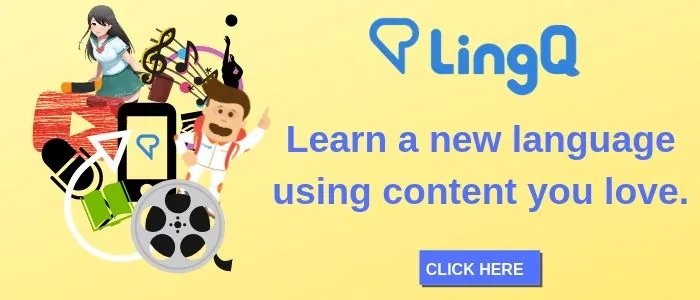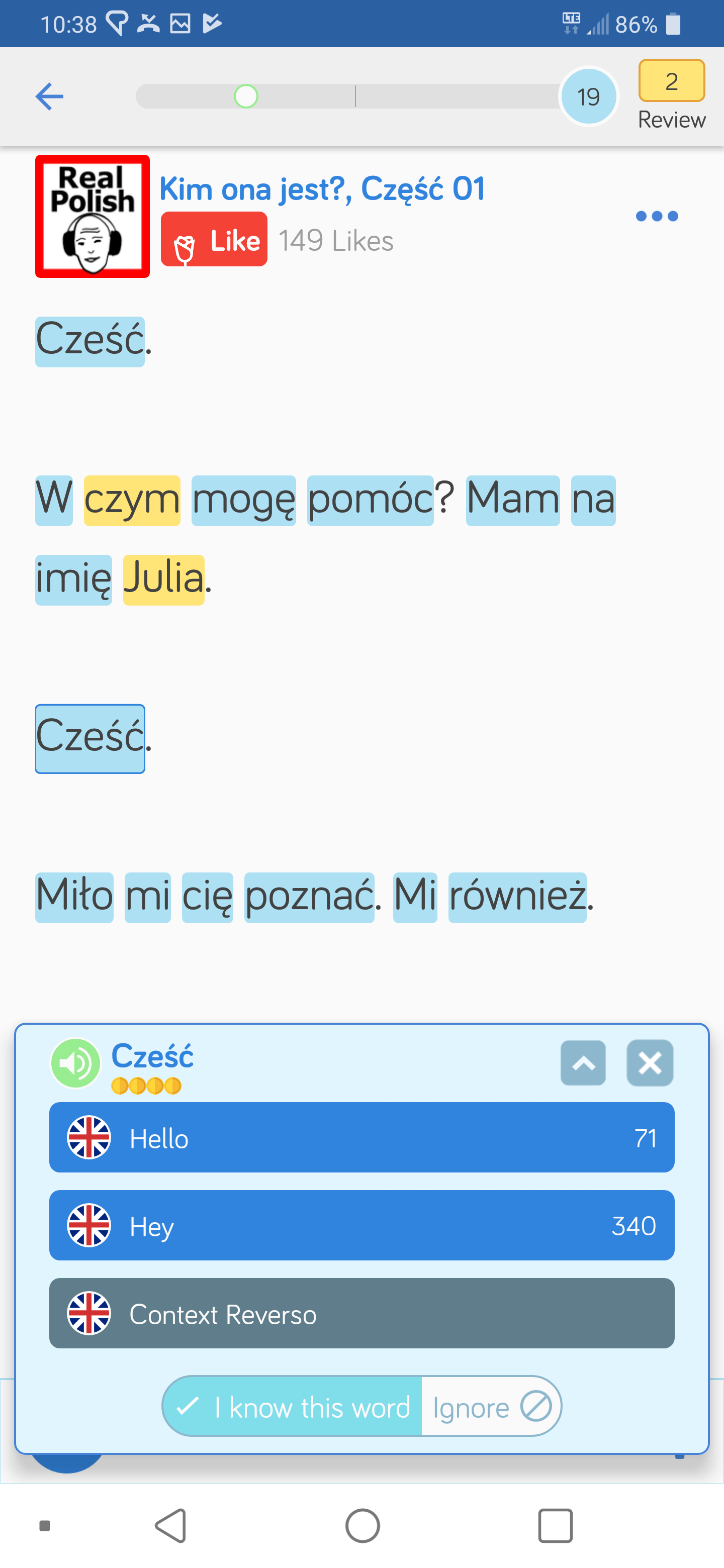Easy and Useful Polish Phrases for Beginners
Are you looking forward to your trip to Poland? Traveling to a new country and learning about its culture is very exciting. You can enjoy your experience even more when you’re able to say a few words in a language of the country you’re visiting. Of course, many people in Poland speak good English but not everyone. Make sure you’re prepared for your trip by learning a number of useful Polish phrases.
Greetings and goodbyes

When my husband traveled with me to Poland to meet my family, he always made sure to say hello in Polish. People were much friendlier to him because of this effort. There are numerous ways of greeting people and saying goodbye to them in Polish. The most important of them are:
- Dzień dobry
“Dzień dobry” is a formal way of saying hello, which will work well with strangers, older people and family members who aren’t a part of your “inner-circle”. This expression is used during the day.
- Dobry wieczór
Is it getting dark? Replace “Dzień dobry” with “Dobry wieczór” when greeting people in the evening and at night.
- Cześć
If you’re friendly with someone or they’re your immediate family member, you should greet them with “Cześć!”, an equivalent of “Hi!”. The good thing about this word is that you can also use it to say goodbye. It may be a bit challenging to master its pronunciation but don’t get discouraged. Find a friendly Pole and they’ll help you perfect the way you say the word.
- Do widzenia
If it’s time to say goodbye in a formal context, say “Do widzenia” which means “Until I see you again”. For instance, if entering a corner shop, you’d say “Dzień dobry” or “Dobry wieczór” and when leaving it you’d say “Do widzenia”.
Polite expressions

Always remember to be as polite as possible. Here’s a number of useful phrases that will help you with this:
- Dziękuję or dzięki
When you want to say “Thank you” you’d use “Dziękuję” in Polish. If you’re chatting to someone you’re on informal terms with “Dzięki” would work better.
- Przepraszam
“Przepraszam” may be a bit confusing for an English speaker as it may mean both “I’m sorry” and “Excuse me”, depending on the context. It’s a very useful word that may come in handy in many situations:
Przepraszam, gdzie jest muzeum/poczta/kino/teatr? – Excuse me, where do I find a museum/a post office/a cinema/a theatre?
Przepraszam gdzie mogę kupić bilety autobusowe? – Excuse me, where can I buy bus tickets?
Przepraszam, która godzina? – Excuse me, do you know what time it is?
Przepraszam, gdzie jest łazienka/toaleta? – Excuse me, where is the bathroom?
Przepraszam. – I’m sorry. (when you bumped into someone and in many other situations)
In a shop

If you’re visiting a big city and only shop at supermarkets you may never struggle to find an English speaker. Such places are also more impersonal and rarely require communication. However, if you like corner shops or are planning to visit small towns and villages you may have to use these Polish expressions:
Ile to kosztuje? – How much does it cost?
Czy jest mleko/kawa/chleb etc. – Do you have milk/coffee/bread?
Czy mogę zapłacić kartą? – Can I pay with a card?
Nie mam gotówki. – I have no cash on me.
Nie mam drobnych. – I don’t have change.
Poproszę kilogram ziemniaków/marchewek/jabłek. – I’ll have a kilogram of potatoes/carrots/apples, please.
Poproszę dwa piwa (brand name). – I’ll have two beers.
A small note here: Most Polish people would ask directly for two, for example, Heinekens. This requires the proper choice of cases so it may be easier to use the structure suggested above with the name of the brand as written on the product.
Ile płacę? – How much do I owe you?
Presenting yourself

With a few Polish hello, goodbyes, and such, you’ll at least learn how to present yourself and answer simple questions to impress a new friend or a pretty girl/boy:
Jak masz na imię? – What’s your name?
Mam na imię X. / Jestem X. – My name is X. / I’m X.
Skąd jesteś? / Skąd pochodzisz? – Where are you from? / Where do you come from?
Pochodzę z Anglii. / Pochodzę ze Stanów Zjednoczonych. – I come from England. / I come from the United States.
Ile masz lat? – How old are you?
Mam (number) lat. – I’m (number) years old.
Czy jesteś tu na wakacjach? – Are you here for a holiday?
Tak. – Yes.
Nie. – No.
Na ile tu przyjechałeś? – How long are you going to stay for?
Na dwa tygodnie. – For two weeks.
Czy podoba Ci się Polska? – Do you like Poland?
Polska to piękny kraj. – Poland is a beautiful country. (Never underestimate flattery!)
Note that the above Polish phrases are informal as this is the context you’d most probably use them in.
Survival phrases

Some phrases may turn out to be useful as you never know what will happen to you during your travels. Better safe than sorry.
Niestety nie mówię po polsku. – Unfortunately, I don’t speak Polish.
Nie rozumiem. – I don’t understand.
Pomocy! – Help!
Czy może mi Pan / Pani pomóc? – Can you help me? (first option is used when talking to a man, second to a woman)
Zgubiłem się / Zgubiłam się – I’m lost (the first option is used when you’re a man, the second one when you’re a woman)
Potrzebuję lekarza. – I need a doctor.
Proszę wezwać karetkę. – Please, call an ambulance.
Mam alergię na koty/psy. – I’m allergic to cats/dogs.
Many of the above expressions require a case which is different than the main one (mianownik) you’ll find in a dictionary. It’s grammatically incorrect to use a wrong case but that doesn’t mean that people won’t understand you.
Carry a paper dictionary with you or get an online version when traveling to Poland. Find the word you’re looking for and pronounce it or even show it in its written form, if you’re having communication problems. Don’t shy away from making mistakes. Your goal at this level is just to be understood. Finger pointing may be considered rude in general but can help you when you really don’t know what the word you’re looking for is.

Learn Polish Faster Using LingQ
Immersing yourself in Polish doesn’t require you to travel abroad or sign up for an expensive language program.
However, it can be a bit tiresome to find interesting content, go back and forth between sites, use different dictionaries to look up words, and so on.
That’s why there’s LingQ. A language app that helps you discover and learn Polish from content you love.

You can import videos, podcasts, and much more and turn them into interactive lessons.
Keep all your favorite Polish content stored in one place, easily look up new words, save vocabulary, and review. Check out our guide to importing content into LingQ for more information.
LingQ is available for desktop as well as Android and iOS. Gain access to thousands of hours of audio and transcripts and begin your journey to fluency today.
***
Magdalena Osiejewicz-Cooper is a native speaker of Polish. She speaks fluent Italian and French. She is currently self-studying Spanish.
***
